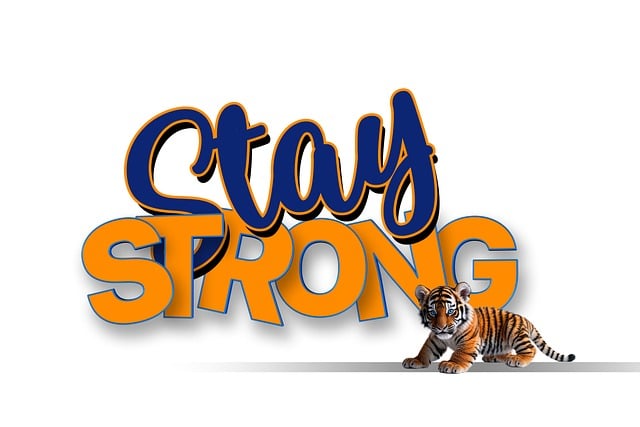Cognitive-Behavioral Therapy (CBT) is a powerful tool within co-dependency support groups, helping individuals cope with their loved ones' addiction. CBT focuses on identifying and challenging negative thought patterns, leading to improved well-being and healthier perspectives. Integrated approaches including yoga, meditation, and coaching empower participants to manage stress, enhance self-care, and support both their mental health and their loved ones' recovery journeys. By reframing unhelpful thoughts through cognitive restructuring, CBT helps individuals gain control over their thoughts and behaviors.
Cognitive-behavioral therapy (CBT) offers a powerful approach to healing and personal growth, especially for those navigating co-dependency issues. This therapeutic method empowers individuals by teaching them to identify and change negative thought patterns and behaviors. In the context of co-dependency support groups for loved ones of addicts, CBT provides valuable tools to manage emotions, improve communication, and foster healthier relationships. By understanding and applying its core principles, participants can find hope, gain insights, and embark on a path toward recovery and personal transformation.
- Understanding Cognitive-Behavioral Therapy (CBT) and Its Core Principles
- How CBT Can Help in Co-dependency Support Groups for Loved Ones of Addicts
- Practical Steps to Reframe Negative Thoughts and Behaviors Using CBT Techniques
Understanding Cognitive-Behavioral Therapy (CBT) and Its Core Principles

Cognitive-Behavioral Therapy (CBT) is a highly effective form of psychological treatment that focuses on the connection between thoughts, feelings, and behaviors. At its core, CBT empowers clients to identify and challenge negative thought patterns, ultimately leading to positive behavioral changes. By understanding and reframing these thoughts, individuals can gain new insights, develop healthier coping mechanisms, and improve their overall well-being.
The core principles of CBT involve helping clients recognize automatic negative thoughts—often unchallenged and unexamined—and replacing them with more realistic and balanced perspectives. This process involves various techniques, including group counseling sessions fostering empathy, accountability, and a sense of community among peers in recovery. Yoga and meditation classes for stress reduction can also complement CBT, offering tools to manage anxiety and promote mental clarity. Moreover, addressing co-occurring disorder treatment options ensures a holistic approach, providing co-dependency support groups for loved ones of addicts with the resources they need to navigate their unique challenges alongside their affected relatives or friends.
How CBT Can Help in Co-dependency Support Groups for Loved Ones of Addicts

Cognitive-behavioral therapy (CBT) plays a pivotal role in supporting individuals navigating co-dependency issues within co-dependency support groups for loved ones of addicts. This therapeutic approach equips participants with essential tools to challenge and reshape negative thought patterns often associated with grief, anger, or resentment towards their loved ones’ addiction. By identifying cognitive distortions, CBT encourages group members to develop healthier perspectives, fostering a more supportive and compassionate environment.
In the context of early sobriety, combining CBT with Healthy Relationships Coaching and Yoga and Meditation Classes for Stress Reduction can be transformative. CBT aids in understanding triggers and developing effective coping strategies, while Healthy Sleep Habits Coaching addresses the importance of rest in managing stress and emotional well-being. These integrated approaches empower participants to cultivate positive relationships, enhance self-care practices, and ultimately, promote their own mental health alongside that of their loved ones’ recovery journeys.
Practical Steps to Reframe Negative Thoughts and Behaviors Using CBT Techniques

Practical Steps to Reframe Negative Thoughts and Behaviors Using CBT Techniques
Cognitive Behavioral Therapy (CBT) provides a structured approach for individuals, especially those in co-dependency support groups for loved ones of addicts, to challenge and change unhelpful thought patterns. The first step is identifying negative or distorted thoughts. This involves actively monitoring one’s inner dialogue, taking note of recurring negative themes, and questioning their validity. For instance, if someone constantly thinks, “I’m a failure because I made a mistake,” CBT encourages them to evaluate the evidence supporting this belief and consider alternative perspectives.
Once identified, these thoughts can be reframed by replacing them with more realistic and balanced statements. This process, known as cognitive restructuring, involves challenging the negative thought, gathering evidence against it, and generating alternative explanations. For co-occurring disorder treatment options, CBT offers a powerful tool for managing symptoms, promoting mental health help, and improving overall well-being. It empowers individuals to gain control over their thoughts and behaviors, ultimately guiding them towards healthier decision-making processes.
Cognitive-behavioral therapy offers a powerful tool for individuals navigating co-dependency support groups, providing them with the skills to challenge and reframe negative thoughts and behaviors often associated with addiction. By understanding the core principles of CBT, participants in these groups can gain control over their emotions and perspectives, fostering healthier relationships and personal growth. This evidence-based approach empowers loved ones to break free from unhealthy patterns and create a more positive, supportive environment for themselves and their affected loved ones.






